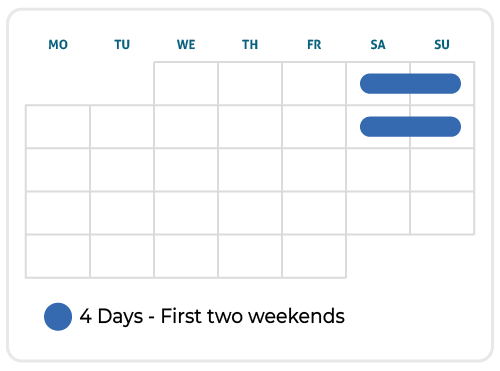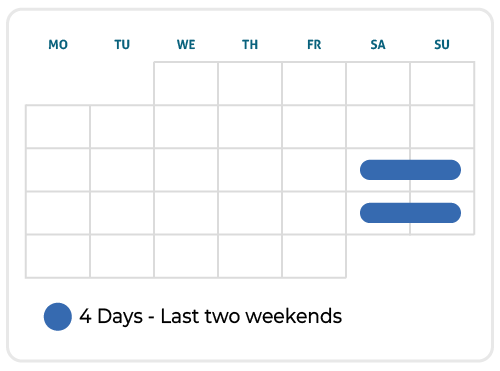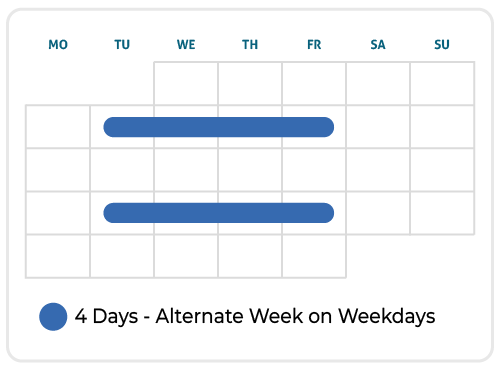Six Sigma Yellow Belt Certification Overview Maricopa, AZ
Your operations experience deserves more than firefighting the same recurring problems every month. While you're busy reacting, quality teams are getting budget, headcount, and leadership visibility by leading structured improvement projects. The difference? They have a Six Sigma Yellow Belt certification that proves they can use data to identify root causes?not just talk about symptoms. That changes today. Our Six Sigma Yellow Belt course isn't another theory-heavy class that drowns you in complex statistics. It's a practical learning experience designed by certified Black Belt practitioners who've successfully led projects Maricopa, AZmanufacturing, IT services, and healthcare operations. You'll master the DMAIC framework and learn how to apply it in real-world environments?where processes aren't documented, data is incomplete, and resistance to change is high. Unlike generic programs that only prepare you for the Six Sigma Yellow Belt exam, this course builds hands-on problem-solving capability. You'll learn how to: Create process maps that expose bottlenecks Use Pareto analysis to prioritize issues that matter Your Six Sigma Yellow Belt certification will prove you understand the methodology?but the real value lies in applying it. You'll return to your workplace ready to identify waste, measure improvement, and present a clear business case for change that management can't ignore. This Six Sigma Yellow Belt training is built for working professionals in operations, production, and quality roles who want to upskill without career disruption. Choose from weekday evening or weekend batches?fully interactive and recorded for flexibility.
Six Sigma Yellow Belt Certification Highlights Maricopa, AZ
Accredited Training Partner
Learn with confidence knowing your training program aligns with IASSC, ASQ, and CSSC standards for Six Sigma Yellow Belt certification.
Taught by Certified Black Belt Practitioners
Master the methodology from experts who hold Six Sigma Black Belt credentials and actively lead process improvement initiatives in the field.
Flexible Schedule
Break into process improvement without disrupting your current job?choose weekday-evening, weekend-only, or intensive 3-day bootcamp options.
Performance-Focused Training
Master DMAIC fundamentals fast with 21 hours of hands-on training and individualized feedback through phase-specific assessments.
Exhaustive Practice Materials
Identify and eliminate knowledge gaps with 1000+ tailor-made practice questions, mock tests, and real-world manufacturing and service scenarios.
24x7 Expert Guidance & Support
Get unstuck immediately as Six Sigma Black Belt experts are available 24x7 to clarify DMAIC concepts and statistical tools at every turn.
Corporate Training

Ready to transform your team?
Get a custom quote for your organization's training needs.
Upcoming Schedule



Skills You Will Gain In Our Six Sigma Yellow Belt Certification Training city83647
Process Mapping & Analysis
Stop accepting broken processes as normal. In this Six Sigma Yellow Belt course, you'll learn proven techniques for creating value stream maps, flowcharts, and SIPOC diagrams that uncover hidden waste and inefficiencies.
Root Cause Analysis
Master it or watch problems recur endlessly. You will develop frameworks using Fishbone diagrams, 5 Whys, and Pareto analysis to identify true root causes instead of treating symptoms.
Basic Statistical Analysis
Quantify problems with data, not assumptions. Learn to calculate process capability, interpret control charts, and apply descriptive statistics skills that make your Six Sigma Yellow Belt training impactful and measurable.
Waste Identification & Elimination
Cut through the noise to find the 8 wastes of Lean. You get templates and structures for identifying defects, overproduction, waiting, non-utilized talent, transportation, inventory, motion, and extra-processing in any operation.
DMAIC Project Support
Build competence or remain sidelined. You will understand how to support Define, Measure, Analyze, Improve, and Control phases as a contributing team member on process improvement projects.
Data Collection & Measurement Systems
Realize that bad data leads to bad decisions. You will learn how to design data collection plans, validate measurement systems, and ensure data integrity before analysis.
Who This Program Is For
Quality Analysts (Entry-Level)
Production Supervisors
Process Coordinators
IT Support Professionals
Customer Service Managers
Recent Graduates
If you lead projects and meet PMI's mandatory experience requirements, this program is engineered to get you certified.
Six Sigma Yellow Belt Certification Roadmap Maricopa, AZ
Why get Six Sigma Yellow Belt-certified?
Stop getting filtered out by HR systems
Get noticed for quality and continuous improvement roles that require Six Sigma certification and match your true capability.
Prove foundational competence to hiring managers
Show measurable skill and credibility in manufacturing, healthcare, IT, and service industries where certified analysts are trusted with cost-critical projects.
Transition from operational execution to strategic process improvement
Move beyond following SOPs to identifying waste, reducing defects, and driving measurable cost savings across your organization.
Eligibility & Prerequisites
The Six Sigma Yellow Belt is intentionally designed as an entry-level certification with minimal barriers to entry. Certifying bodies created this credential to validate foundational knowledge for professionals who are starting their process improvement careers or transitioning from operational roles. Here's what you need to qualify:
No Educational Prerequisites: There are no degree or diploma requirements. Anyone with interest in process improvement and quality management can pursue Yellow Belt certification.
Training Recommended But Not Mandatory: While most certifying bodies recommend formal training, only AIGPE requires completion of their course to sit for the exam.
Certification Body Selection: Choose between IASSC ($250 USD, 60 questions, 2 hours), ASQ ($347 USD for members, 90 questions, 2.3 hours), or CSSC ($99 USD, 50 questions, 1 hour) based on industry recognition and budget.
Comprehensive Guidance: For a detailed breakdown of exam formats, passing scores, and preparation strategies, please refer to our FAQ section.
Course Modules & Curriculum
Lesson 1: Process Mapping & Documentation
Stop accepting ambiguous processes. You will learn to create value stream maps, detailed flowcharts, and swim lane diagrams that expose hidden waste, redundant steps, and handoff delays in any process?manufacturing or transactional.
Lesson 2: Data Collection & Sampling Techniques
Understand that opinions don't drive improvement?data does. Learn to design data collection plans, select appropriate sampling methods, and distinguish between continuous and discrete data. Master operational definitions that ensure data consistency across multiple collectors.
Lesson 3: Measurement System Analysis (MSA) Basics
Learn to validate your measurement system before trusting the data. Understand Gage R&R studies, accuracy, precision, and stability. Recognize when measurement error is masking true process variation and how to fix it before proceeding to analysis.
Lesson 1: Descriptive Statistics & Data Visualization
Move beyond Excel averages. You will learn to calculate mean, median, mode, range, variance, and standard deviation. Master histograms, box plots, scatter diagrams, and run charts that reveal patterns invisible in spreadsheet tables.
Lesson 2: Process Capability Analysis
Understand whether your process can actually meet customer specifications. Learn to calculate Cp, Cpk, Pp, and Ppk indices. Interpret sigma levels and understand what "six sigma quality" actually means in real-world terms.
Lesson 3: Root Cause Analysis Tools
Master the core techniques: Fishbone (Ishikawa) diagrams, 5 Whys analysis, and Pareto charts. Learn when each technique is appropriate and how to facilitate root cause sessions without wasting everyone's time chasing symptoms instead of causes.
Lesson 1: The 8 Wastes of Lean
Identify and eliminate waste systematically. Learn to recognize Defects, Overproduction, Waiting, Non-Utilized Talent, Transportation, Inventory, Motion, and Extra-Processing (DOWNTIME) in manufacturing, service, and transactional processes.
Lesson 2: Kaizen & Rapid Improvement Events
Understand that not every improvement requires a six-month Black Belt project. Learn to facilitate rapid kaizen events that deliver measurable results in days, not months. Master 5S workplace organization and visual management techniques.
Lesson 3: Brainstorming & Solution Selection
Generate improvement solutions that are actually implementable. Learn structured brainstorming techniques, affinity diagrams, and multi-criteria decision matrices to evaluate solutions against cost, impact, and feasibility constraints.
Lesson 1: Control Plans & Mistake-Proofing
Understand that implementation isn't the finish line. Learn to create control plans that sustain improvements after project closure. Master poka-yoke (error-proofing) techniques that prevent defects from occurring in the first place.
Lesson 2: Statistical Process Control (SPC) Basics
Learn to monitor process stability using control charts. Understand common cause versus special cause variation. Interpret X-bar and R charts, p-charts, and c-charts to detect when processes drift out of control.
Lesson 3: Final Review & Certification Readiness
Consolidate your knowledge across all five DMAIC phases and address any remaining weak spots through targeted review. Complete final practice assessments aligned with IASSC, ASQ, or CSSC formats and prepare for your certification journey with confidence.





